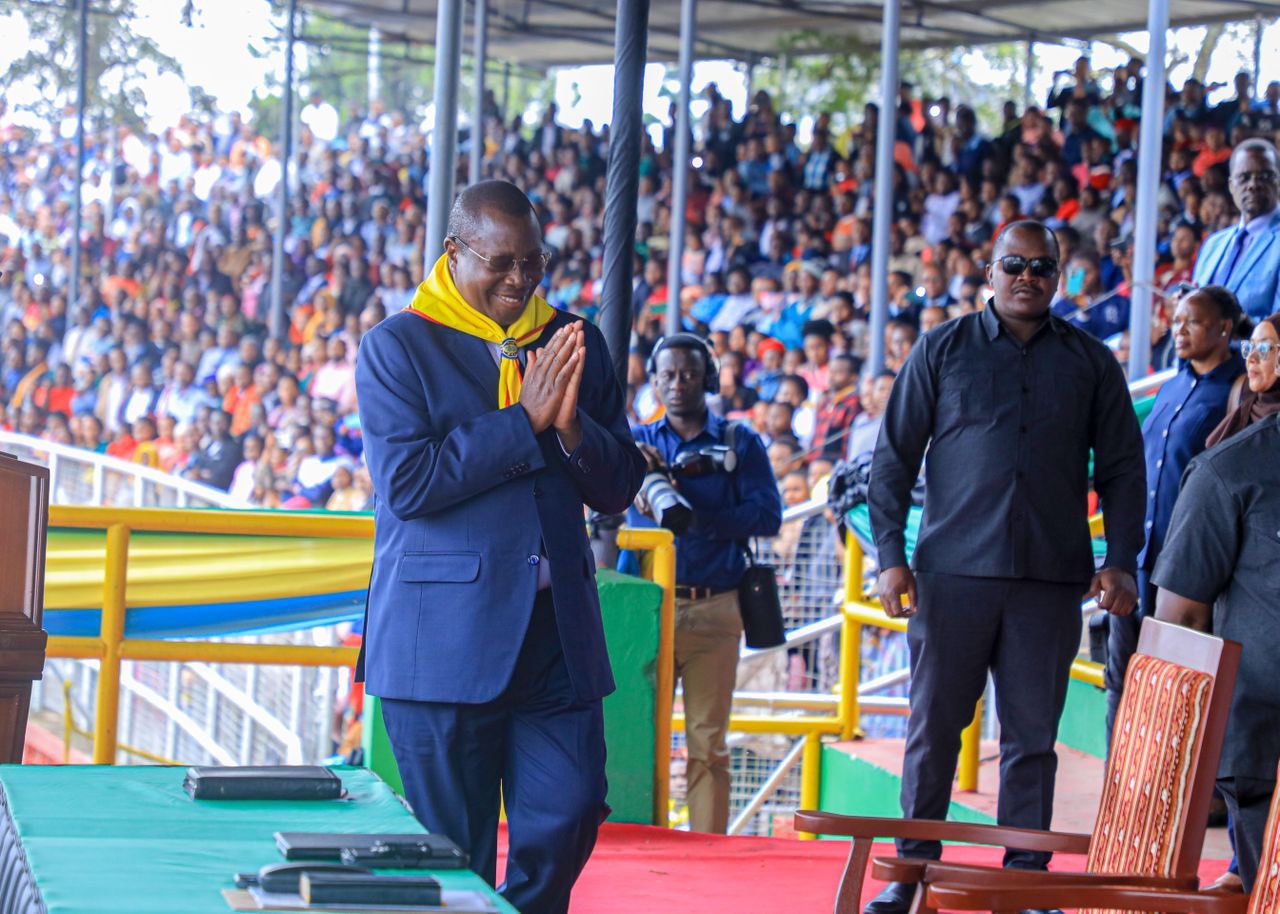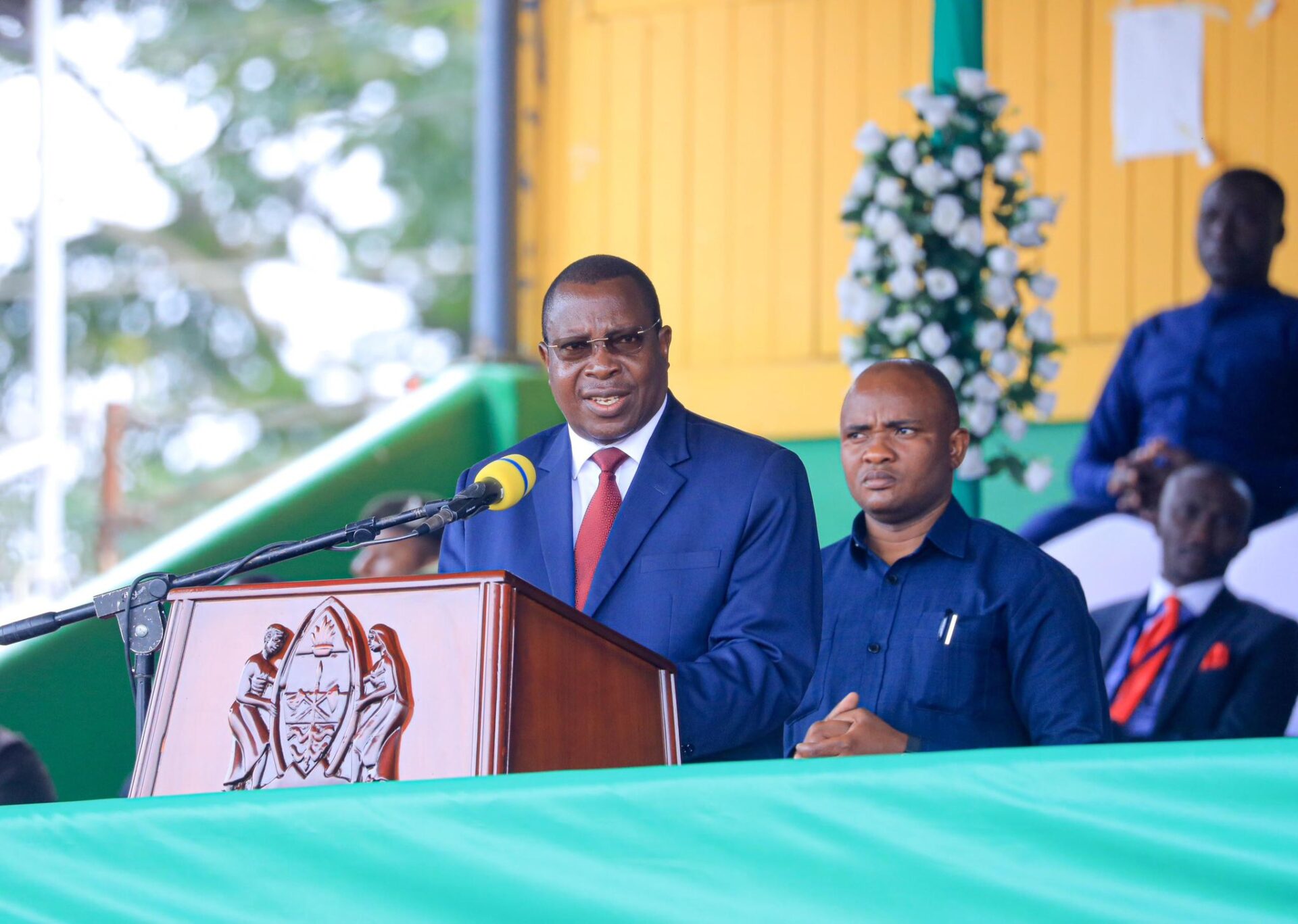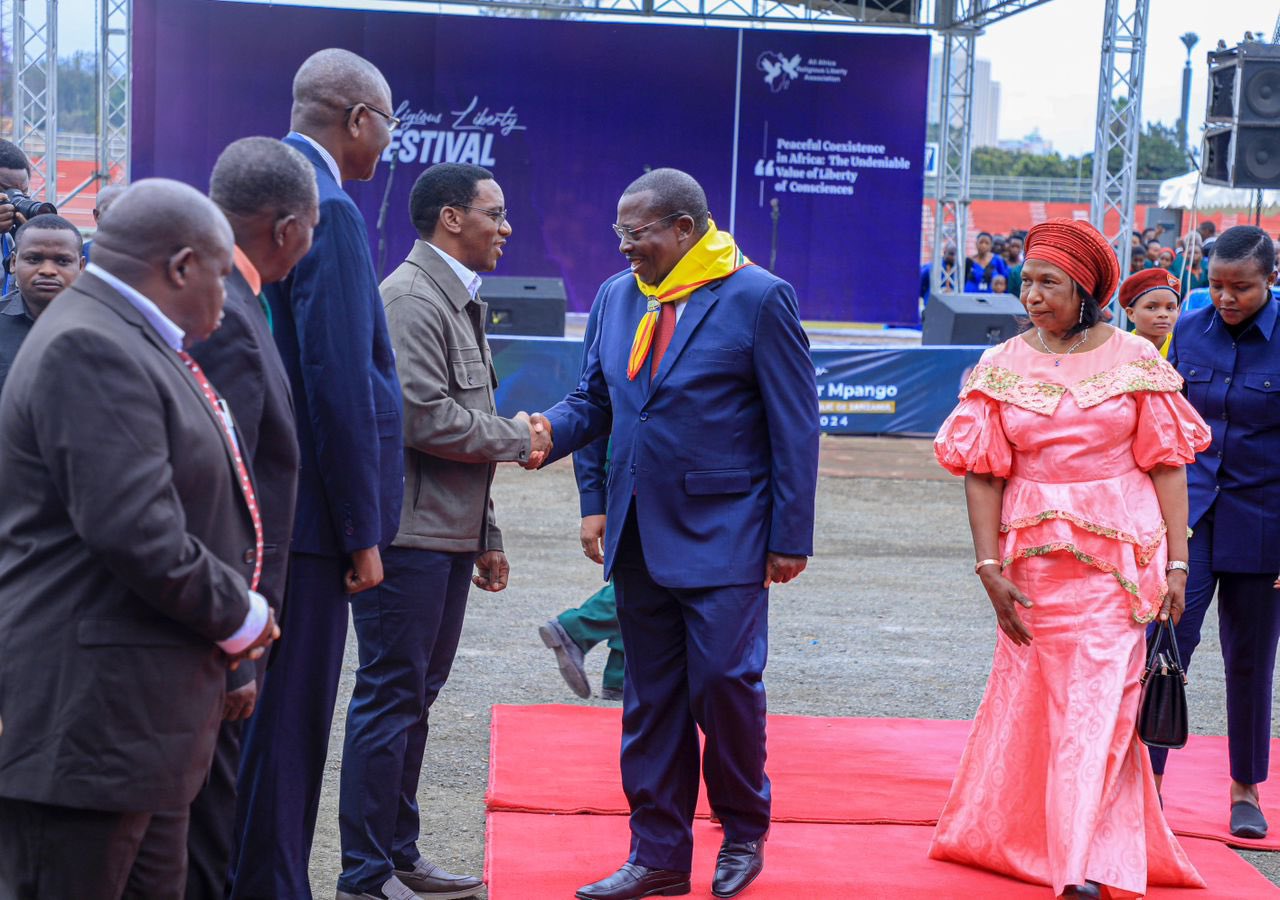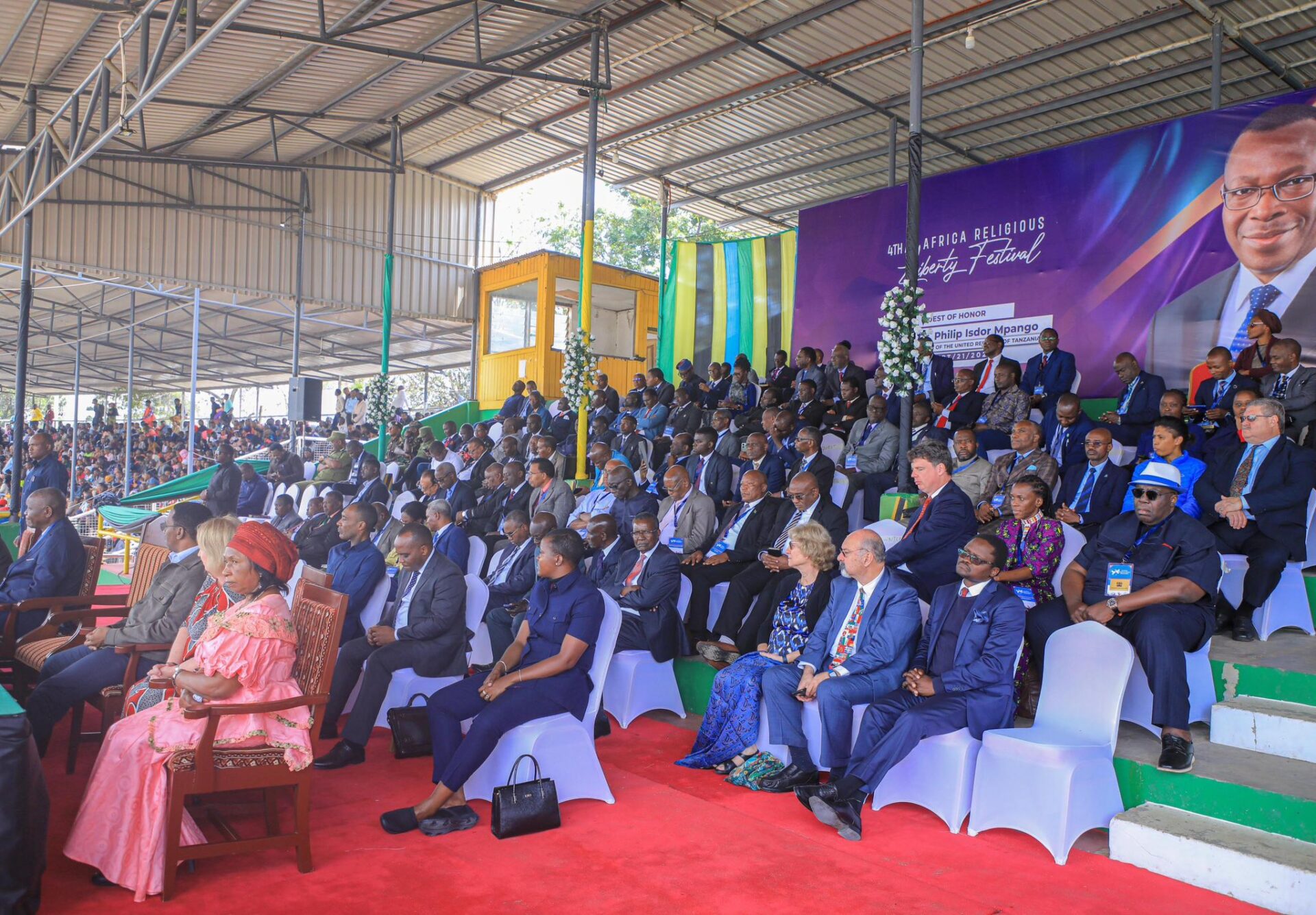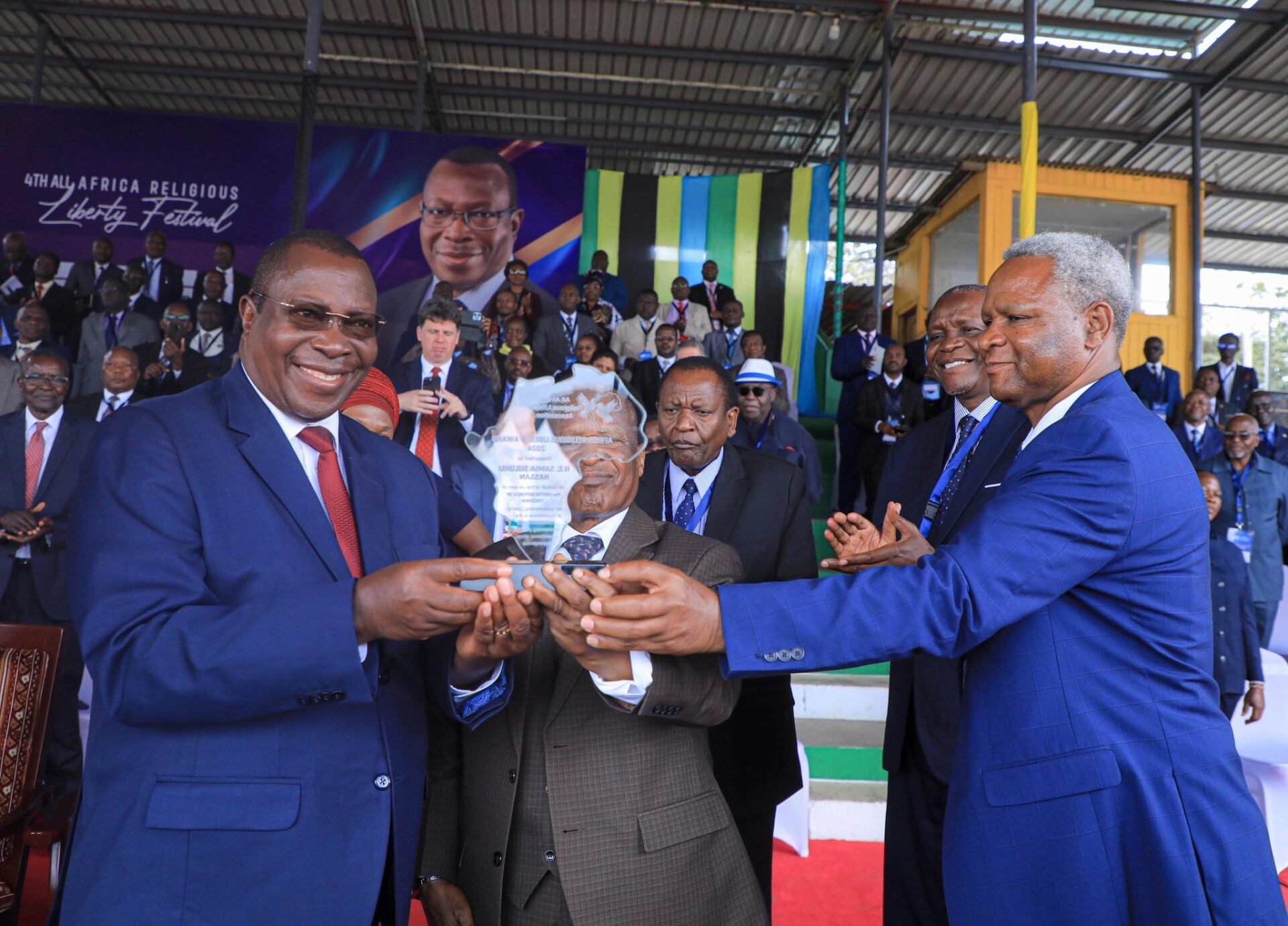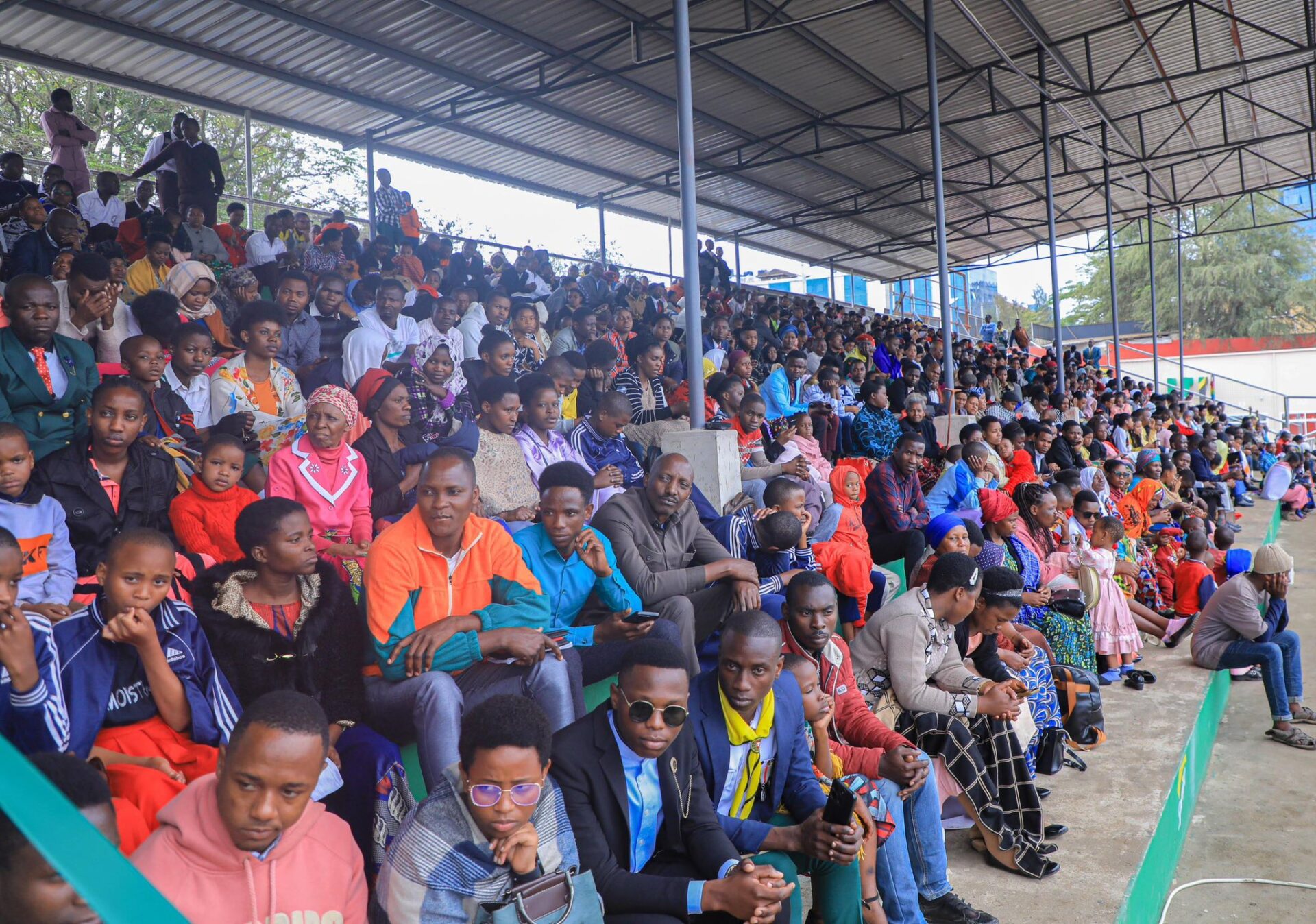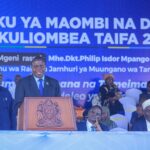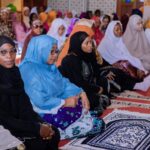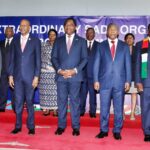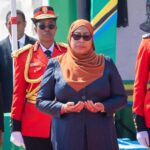Arusha, Tanzania – The Vice President of the United Republic of Tanzania, Hon. Dr. Philip Mpango, has called upon religious leaders to engage in reflection on the increasing prevalence of conflict and violence among those who adhere to the same faith.
As Vice President of the United Republic of Tanzania, I urge all those who serve God to reflect on the growing trend of conflict and violence among believers of the same faith.
At the present time, we are observing a situation in which religious leaders are removing or expelling each other from houses of worship for a variety of reasons, including the misuse of money and church property, the pursuit of political power, preferential employment, corruption, and a lack of justice in elections.
Religious leaders occupy a unique position of esteem and authority in our society, serving as representatives of God on Earth. It is crucial to exercise restraint in the pursuit of excessive wealth and power, and to re-focus on the core principles of love and compassion.
It is recommended that religious leaders resume the practice of engaging in constructive dialogue and mutual respect within their respective institutions, rather than resorting to conflict and division on online platforms.
Furthermore, it is imperative to consider the phenomenon of certain religious leaders aligning themselves with political parties and subsequently presenting their personal political perspectives as the official stance of their religious or sectarian institutions. This situation gives rise to challenges in the relationship and cooperation between the government, which is not aligned with any particular religion, and some religious leaders who are clearly affiliated with political parties.
It is my recommendation that religious leaders advocate for the significance of maintaining a state of security and harmony with the natural environment. The environment and its resources are of significance in the act of worship and in the empowerment of all living beings, enabling them to coexist in a state of peace and interdependence.
It is my further recommendation that the issue of moral standards in society be addressed in its entirety, commencing with parents and guardians and extending to young people and children. It is imperative that religious educators be present in schools to ensure the transmission of positive values to both current and future generations.
Tanzania is one of the most peaceful and stable countries in Africa, due to the foundations laid by the nation’s founders, who emphasised unity, solidarity, mutual respect and the elimination of religious, political, racial or ethnic differences.
The Constitution of the United Republic of Tanzania enshrines the right to religious freedom and provides for its protection. The government maintains close collaboration with religious leaders across the country, particularly in the realms of health and education. Through these partnerships, challenges are addressed and religious activities are conducted in a manner that ensures peace and stability.
It is my sincere hope that all religious leaders will join me in promoting mutual respect and understanding, so that we may continue to live in harmony and peace.
The following points are of particular significance:
It is incumbent upon religious leaders to exercise control over the desire for excessive wealth and the lust for power.
It would be beneficial for leaders to resume the practice of engaging in dialogue and expressing affection within their respective congregations.
It is incumbent upon religious leaders to encourage their followers to live in harmony with the environment.
* The inculcation of moral principles should be a fundamental aspect of the educational curriculum, as well as a priority within the domestic sphere.
Tanzania’s Commitment to Religious Freedom
Tanzania is widely acknowledged for its exemplary record of peace and stability, which is in part attributable to its unwavering commitment to the protection of religious freedom. This commitment is enshrined in the Constitution of the United Republic of Tanzania, which guarantees the right to freedom of religion and conscience for all citizens.
The government of Tanzania engages in active collaboration with religious leaders and organisations across a range of sectors, including health and education. Such collaboration is vital for the delivery of essential services to the population and the advancement of social cohesion.
Cooperation in the Health Sector
Religious organisations play a significant role in the provision of healthcare services in Tanzania, particularly in rural and underserved areas. The government engages in collaborative efforts with faith-based organisations to facilitate the establishment and operation of hospitals, clinics, and dispensaries. These facilities provide a comprehensive range of services, including maternal and child healthcare, immunisation, and HIV/AIDS prevention and treatment.
Cooperation in the Education Sector
Religious organisations are also engaged in the field of education in Tanzania. Such institutions are established and managed by religious organisations, which provide quality education to students of all faiths, including the establishment and management of schools, colleges and universities. The government acknowledges the value of religious education and permits religious organisations to integrate religious instruction into their curricula.
Interfaith Dialogue and Cooperation
The government of Tanzania actively encourages interfaith dialogue and collaboration between disparate religious communities. This is achieved through the implementation of various initiatives, such as the Inter-Religious Council of Tanzania (IRCOT), which convenes leaders from disparate religious traditions to deliberate on matters of shared concern and to foster mutual understanding and tolerance.
Protection of Religious Rights
The government of Tanzania is firmly committed to the protection of the religious rights of all its citizens. It implements measures designed to prevent religious discrimination and violence. The country has a robust legal framework that prohibits hate speech and incitement to religious hatred.
Call to Action
In his address to the assembled religious leaders and participants of the Fourth Conference on Religious Freedom in Africa, Vice President Mpango issued a robust call to action. He exhorted them to give priority to the following:
1. Addressing Issues of Good Morals
The Vice President highlighted the necessity for religious leaders to proactively address ethical issues within their congregations and communities. He emphasised the importance of promoting values such as honesty, integrity, compassion, and respect for others. By instilling these values in their followers, religious leaders can contribute to the development of a more ethical and just society.
2. Promoting Mutual Respect and Understanding
Additionally, Vice President Mpango urged religious leaders to foster mutual respect and understanding among adherents of disparate faiths. He emphasised the necessity of interfaith dialogue and collaboration to dismantle barriers and construct bridges between communities. By fostering a spirit of tolerance and acceptance, religious leaders can contribute to the creation of a more harmonious and peaceful society.
Specific Calls to Action
In addition to the aforementioned general calls to action, the Vice President also made specific requests of the conference participants.
* Encourage living in harmony with the environment.
* Teach good morals in schools and homes.
* Engage with the youth to promote positive values and prevent radicalization.
Additional Information
The Fourth Conference on African Religious Freedom brought together a diverse group of participants from across the continent, including:
* Lawyers
* Judges
* Diplomats
* Academics
* Religious leaders
The objective of the conference was to promote the following principles among Africans:
* Peace: The objective is to establish an environment that is conducive to the peaceful coexistence of individuals, wherein they are able to live and practise their faith without fear of persecution.
* Human Dignity: The acknowledgement and esteem of the intrinsic worth and value of each individual, irrespective of their religious convictions.
* Freedom of Will: The objective is to guarantee that individuals are able to freely choose and practise their religion, without any form of coercion or discrimination.
Outcome of the Conference
The conference constituted a forum for the discussion and exchange of experiences pertaining to the subject of religious freedom in Africa. Furthermore, it facilitated dialogue between religious leaders and policymakers, which resulted in a more nuanced understanding of the challenges and opportunities for promoting religious freedom on the continent.
The conference resulted in the following outcomes:
A declaration was issued, which called for the protection and promotion of religious freedom in Africa.
* Recommendations for governments and religious leaders on the most appropriate means of addressing issues related to religious freedom.
* A network of individuals and organisations dedicated to collaborative efforts to advance the cause of religious freedom in Africa.
Significance of the Conference
The Fourth Conference on African Religious Freedom constituted a significant event, uniting key stakeholders with the objective of addressing the issue of religious freedom on the continent. The conference provided a forum for dialogue, collaboration, and the formulation of strategies to promote peace, human dignity, and freedom of will among Africans.
In conclusion, Vice President Mpango’s call to action serves to emphasise the pivotal role that religious leaders play in the promotion of moral standards, mutual respect and understanding. By espousing these principles, religious leaders can make a substantial contribution to the advancement of a more equitable, tranquil, and concordant society.
Tanzania’s commitment to the protection of religious freedom is a crucial element in maintaining stability and social harmony within the country. The government’s collaboration with religious leaders and organisations in a range of sectors, including health and education, ensures the provision of essential services to the population and the safeguarding of religious rights.
Tanzania Media
- Kanyala Ferry Launch: TEMESA’s New Service for 15,000 Sengerema Residents (Mwanza) - 18 August 2025
- Russia-Tanzania Naval Cooperation: How the Smolny Training Ship Boosts Dar es Salaam’s Maritime Security - 18 August 2025
- Tanzania’s ICGLR Commitment: Stabilising the DRC & Great Lakes Region - 18 August 2025



